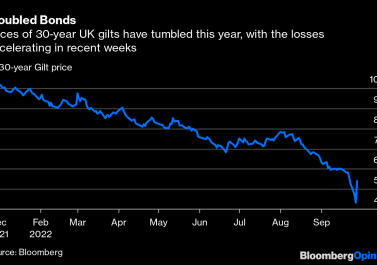Comrades from abroad asked us for a brief report about the post-election situation here in the UK. We wrote a first overview, mainly concerning the situation immediately after the election. [1] Below you can find an update in the form of a brainstorm – if you think we’ve missed out significant elements or misinterpreted them, please let us know:
angryworkersworld@gmail.com
The left (and the government itself) are trying to figure out whether the Johnson government is actually a qualitative shift from previous Tory policy. Former ‘radical leftists’, such as Paul Mason, treat the new government primarily as ‘corrupt racists’ without any other plan than clinging to power. The hiring (and subsequent self-firing) of absolute dickheads like Andrew Sabisky (proponents of ’enforced sterilisation of the under-classes’ and ‘Afro-Americans are less intelligent’ etc.) seems to confirm their view. So do the recent deportation flights ‘back’ to Jamaica of working class people who grew up in England.
For people like Mason, the political consequence is to build a ‘rational and progressive alliance’ between a moderate Labour Party, the Greens and the Liberal Democrats, as part of a culture war that overrides the war between classes. Mason in particular splits from the ‘stalinist Corbyn’-left and backs the centrist candidate, Keir Starmer. The current Labour Party candidate race is the main focal point of the left in the UK – which is an expression of the low level of local class struggle. Keir Starmer will win the election, ‘because he seems like he can win an election’ and as a result the ‘Corbyn’-left in and around Labour will water itself down further.
Is the current government as irrational and short-sighted as portrayed by the centrist left? The Tories purged the neoliberal EU-friendly wing. The dismissal of the Chancellor Sajid Javid marked a symbolic shift: the times of hard austerity are over, but the money has to be spent according to the degree of popular impact it will generate. Plans to invest in the regions of the former ‘Red Wall’ are emphasised. But when it comes to longer term industrial policies the Johnson government finds itself in a catch 22 situation on a number if levels. Firstly, in order to strengthen its position in the trade negotiations with the EU, they need the prospect of a good trade relation with the US as a lever. But at each turn the US demonstrates who is the ruling force. For example, the UK government was not even consulted when it came to the military attacks on Suleimani in Iran.
Secondly, decades of privatisation and prioritising investment into financial services has led to a shrinking of the local engineering brain-pool. Consequently, the UK would need the support of companies like Huawei to build up technical infrastructures, which the US opposes practically and publicly. Chinese companies offered to build the badly planned and over-expensive speed train HS2 faster and cheaper than local companies, but US representatives weren’t happy. During the last decade UK productivity increase was the lowest in 250 years, at an annual rate of 0.3%. This means that in terms of ‘industrial fire-power’ vis-a-vis the EU, the government’s public display diverges significantly with the UK’s actual structural potential.
The same is true when it comes to ‘labour supply’. The only government act so far has been the hardline announcement of a new point-based immigration system. Officially, in order to get a work visa you will have to speak English; earn over £25,000 a year; have a guaranteed job; have desired qualifications. The Tory government addresses leftist arguments in two ways, and rather cleverly so: a) they say that the new system treats migrants more ‘equally’ as it would not distinguish between ‘Poles’ or ‘Indians’, EU or non-EU migrants; and
b) would ‘wean’ UK employers’ off their dependency on cheap labour, which is supposedly preventing them from investing in productive technology.
The Tory’s promise to shift to a more skilled, better paid and more productive labour force…according to their propaganda. Again, the reality looks different. There are currently 800,000 vacancies that cannot be filled. The UK government engages in a trial exchange with Ukraine to bring in seasonal agricultural labour because UK farms can’t find enough workers. The most likely outcome of all this will be a continuation of ‘unskilled labour’ migration but on short-term contracts, attached to a specific job and with no access to social benefits. The foundations of local capital and labour within this context are weak. The announcement to open ‘free ports’ to attract global trade through low taxation may seem realistic, but cannot be treated as a strong industrial plan to counteract these weak foundations.
Currently we see the biggest strike at universities in UK history. But it is mainly the permanent academic and administration staff that are involved, rather than the growing precarious workforce. At the same time we see the build up of a significant confrontation in the Royal Mail, with hundreds of short and symbolic gate meetings and a new upcoming strike ballot. These are the ‘usual suspects’ on strike, but these disputes might become catalysts for other sectors.
We ourselves are busy with the preparation of our book tour. [2] The book has two elements – ‘hard experience’ (‘base building’ on the rougher edges of town; years of ‘deep organising’ in the low wage sector) and a concrete criticism of electoral strategies based on pragmatic, but nevertheless revolutionary class politics. We hope that with the help of discussion around the book we can build a modest political network of two, three dozen comrades in the UK.
[1]
https://angryworkersworld.wordpress.com/2020/01/06/a-short-report-from-the-uk/
[2]
www.classpower.net


